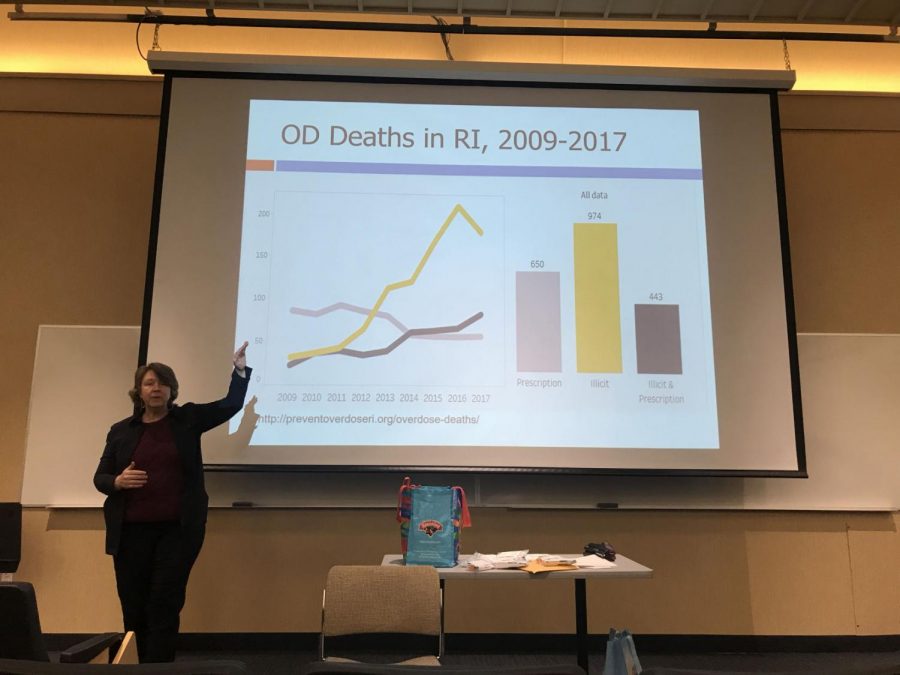Narcan now available on campus for emergency overdoses
Opioid use has grown into a national epidemic killing thousands of people, specifically in Rhode Island. Now, officials across the Ocean State are training people to administer Narcan, an emergency medication to reverse an overdose.
RWU offered a training for students and faculty to learn how to administer Narcan. Anne Mitchell, director of health services at RWU, introduced public health professional Michelle McKenzie who facilitated the training. During the presentation, McKenzie handed out bags with two doses of Naloxone Hydrochloride to anyone in the audience who wanted one.![]()
McKenzie reported that there were 336 fatal overdoses in 2016, which dropped down to 323 in 2017. She said that although not all of the data is in, it looks like there will be another decrease to be less than 323 in 2018.
“For the first time in over a decade, there is a decrease in deaths from the year before,” said McKenzie. “We hope that the height for these fatalities was in 2016. We hope.”
All humans have opioid receptors in their nervous system, working simultaneously with the limbic system, which is responsible for the body’s relaxation.
“People who are having a variety of things going on in life can be more susceptible to that explosion going on in the brain that says ‘this is a really good feeling,’” said McKenzie.
Opioids change the neurotransmitters receptors in the brain causing the person to become physically dependent on it.
Fentanyl is a synthetic opioid that is similar to morphine but is extremely more powerful. It’s also often used to treat patients with chronic pain who are physically tolerant to other opioids, according to the National Institute on Drug Abuse.
McKenzie said Fentanyl was involved in 50 percent of overdose fatalities in 2015, 56 percent in 2016 and 62 percent in 2017.
When someone is experiencing an overdose, the body is not getting enough oxygen. The fingertips are often blue and ashy, there is shallow breathing, clammy skin, and the person is unresponsive. By putting knuckles on the person’s chest bone and pushing hard, the person should naturally respond to the pain. If they don’t, it’s recommended to immediately call 911 and administer the Narcan. It would also be beneficial to give the victim rescue breaths to get them more oxygen.
“We do not have an opioid issue on campus and we have only been called once in the last couple of years for assistance with a non-student who ingested an unknown substance and needed Narcan,” said Steven Melaragno, director of public safety. “The training is a good way to raise awareness and talk about the growing problem nationally, as well getting as many people trained as possible while strategically placing the Narcan in areas across campus for use in an emergency should one occur.”
Many Resident Assistants have Narcan available in case of an emergency. Melaragno said that Narcan kits will be stored in the CORE offices, and in all the AED locations across campus in addition to the Public Safety staff carrying it.
“The more kits we have in circulation the more quickly we can begin treatment in the event of an emergency,” he said.






